Sometimes corporate reforms come in disguise, like the "iPads are a civil right" that turned out to be a boondoggle for someone's favorite vendor.
LAUSD's school calendar may have been the same. For years, a so-called reform effort to boost achievement cut summers short. It seems no reform is worthwhile unless it punishes someone.
No evidence was shown that connected higher achievement to an earlier school year. Remember, the number of school days did not change, just the start and end dates of the school year. Reform means starting school on August 16th in sweltering southern California rather than after Labor Day.
When three retired principals on the school board, George McKenna, Scott Schmerelson and Richard Vladovic brought the issue to the board on September 20, they had their own experience to dispel the myth that hijacking families' summers led to higher achievement.
“I think the quality of instruction does not change based upon the calendar,” McKenna said.
Vladovic, who has championed a later start for four years, brought a ream of research, including data showing school districts like Torrance Unified's 96% graduation rate with a post-Labor Day start date.
Schmerelson had said, "My biggest concern is with family time. People from all over the world and the United States come to California to enjoy the beaches and the entertainment that we have, especially during July and August. And the people who cannot partake of that are the actual students in L.A. Unified."
Sounds reasonable. But the backlash was fierce.
Howard Blume was right when he wrote that senior staff seemed awfully invested in keeping the calendar as is. He wrote that the staff's extensive report rationalizing the early start seemed to evaporate on closer examination.
Staff seemed baffled by parents. The report said, "most parents express a strong preference for late start," but dismissed it as "tradition (what they recall from their school days)." Howard Blume wrote that although thousands of parents have signed petitions supporting a later start date, "the school system has not determined what the majority wants."
Corporate reform champion Monica Garcia knew what she wanted. She launched into an aggressive showdown, portraying the change as a slide back to low standards. In doing so, she dismissed the thousands of parents who had contacted the school district asking for their summers back.
She said the district should not roll back successful reforms simply for parents' convenience--and just because they had enough votes on the school board.
That's quite a departure from last week when she shouted at the charter schools Rally in the Valley: "When I say 'Parent!' you say 'Power!'"
Parent voice is important when you're trying to advance the reform of *parent choice*. But at other times? Not so much.
That's when I decided it was important to speak up. So I testified at the board meeting, reminding board members that education is not just about test scores, but about creating citizens. Parents play a big role in that, along with educators.
It's ironic that while the calendar was being deliberated, the LAUSD board room was bracing for a stampede of parents to testify on behalf of the 17 charter applicants that were next on the board agenda. The parents were organized by well-funded charter groups ready to give them voice--as long as they turned over their right to transparency of decision-making, access to financial records and notice of public meetings by going charter.
After the calendar passed in a compromise that would move the school year start date closer to Labor Day, the board voted unanimously in favor of renewing eight charters without any discussion. The other nine were simply announced and will be voted on next month.
Among the charter applications was the controversial Magnolia, now run by the founder of the California Charter Schools Association, Caprice Young. Young is also a former board member of LAUSD. So she was right at home. From my seat in the board room, she appeared to be warmly received by senior staff and some former board colleagues. She even had a well respected former LAUSD principal, John White, testify on behalf of Magnolia charters.
The Magnolia posse of parents left the board meeting feeling victorious. Outside, they were congratulated by White, who said "One thing LAUSD has not figured out is how to engage parents."
Dyslexia Awareness could lead to important changes
It's not all bad news though. There are examples of successful parent engagement. Scott Schmerelson's Dyslexia Awareness resolution showed patient listening. With good reason, too. It might show that listening to parents goes far beyond making parents feel heard. If LAUSD could tackle the extremely common learning disability (it's estimated that 1 in 5 people in the US has some form of dyslexia), the district would have a very good chance of actually proving it can improve student learning. There are already established evidence based interventions that have proven results. Dyslexia Awareness is the first step in that direction. With little fanfare, the board might have started something huge.
They'll have plenty of other opportunities to practice engaging parents, too.
Soon, the superintendent will propose a way to explore parents' reasons for withdrawing their children from the district.
Also, in an effort to save a ton of money in the form of 600 tons of organic waste per week including milk, LAUSD will consider studying the issue of why students don't drink milk in their school lunches. Think parents might have some insights there?
